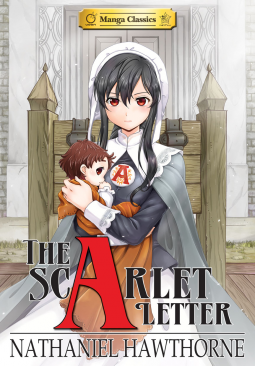
Narconomics
How to Run a Drug Cartel
by Tom Wainwright
This title was previously available on NetGalley and is now archived.
Buy on Amazon
Buy on BN.com
Buy on Bookshop.org
*This page contains affiliate links, so we may earn a small commission when you make a purchase through links on our site at no additional cost to you.
Send NetGalley books directly to your Kindle or Kindle app
1
To read on a Kindle or Kindle app, please add kindle@netgalley.com as an approved email address to receive files in your Amazon account. Click here for step-by-step instructions.
2
Also find your Kindle email address within your Amazon account, and enter it here.
Pub Date Feb 23 2016 | Archive Date Feb 02 2016
Perseus Books Group, PublicAffairs Books | PublicAffairs
Description
This is a unique look into the huge and fascinating multi-billion dollar international drug industry. Rather than reporting it as a “war,” Wainwight looked at the drug trade as a business, with a quarter billion customers and worldwide revenues of about $300 billion a year—with similar concerns as any Fortune 500 business, such as human resources, outsourcing and corporate social responsibility.
Some of Wainwight’s insights to help turn the way we think about the war on drugs on its head include:
•Supply and demand. Drug cartels, as monopoly-buyers, use tactics like forcing their suppliers, the farmers, to absorb price shocks when coca fields are eradicated, rather than absorb it themselves.
•Research and development. The cartels have invested in innovative ways to increase yield from coca plants; so even though less coca is now grown, it yields more cocaine, thus keeping the supply chain in good shape.
•Mergers and acquisitions. Why the violence and bloody battles of the Mexican cartels have been generated by opportunistic takeover attempts.
•Competition and collusion. Why the mafias running El Salvador’s drug gangs realized that violent competition was hurting profits and opted for a strategy of collusion.
•Social responsibility. How cartels “give back” to society by meeting social needs that governments have been unable to satisfy.
•Media relations. How dedicated “press officers” communicate with (and threaten) local journalists to secure the kind of coverage the cartel wants and use the media to send intimidating messages to their rivals
•Human resource models. How cartels, in a business with a high turnover of personnel because of all the killing use prisons as employment agencies and training academies to ensure a steady stream of new recruits for jobs that are risky and don’t pay particularly well.
•Franchising. Lessons the cartels have learned from some of Fortune 500’s restaurant business'.
Using classical economics and modern business theory to explain why drug cartels work in the way they do and based seven years of reporting in more than a dozen countries, Wainwright provides fascinating, humorous and novel insights into a multibillion-dollar worldwide industry and provides an innovative blueprint to address the drug problem, as well as a range of other criminal activities. If mobsters think like businessmen, law enforcers can thwart them by learning to think like economists.
Some of Wainwight’s insights to help turn the way we think about the war on drugs on its head include:
•Supply and demand. Drug cartels, as monopoly-buyers, use tactics like forcing their suppliers, the farmers, to absorb price shocks when coca fields are eradicated, rather than absorb it themselves.
•Research and development. The cartels have invested in innovative ways to increase yield from coca plants; so even though less coca is now grown, it yields more cocaine, thus keeping the supply chain in good shape.
•Mergers and acquisitions. Why the violence and bloody battles of the Mexican cartels have been generated by opportunistic takeover attempts.
•Competition and collusion. Why the mafias running El Salvador’s drug gangs realized that violent competition was hurting profits and opted for a strategy of collusion.
•Social responsibility. How cartels “give back” to society by meeting social needs that governments have been unable to satisfy.
•Media relations. How dedicated “press officers” communicate with (and threaten) local journalists to secure the kind of coverage the cartel wants and use the media to send intimidating messages to their rivals
•Human resource models. How cartels, in a business with a high turnover of personnel because of all the killing use prisons as employment agencies and training academies to ensure a steady stream of new recruits for jobs that are risky and don’t pay particularly well.
•Franchising. Lessons the cartels have learned from some of Fortune 500’s restaurant business'.
Using classical economics and modern business theory to explain why drug cartels work in the way they do and based seven years of reporting in more than a dozen countries, Wainwright provides fascinating, humorous and novel insights into a multibillion-dollar worldwide industry and provides an innovative blueprint to address the drug problem, as well as a range of other criminal activities. If mobsters think like businessmen, law enforcers can thwart them by learning to think like economists.
Available Editions
| EDITION | Hardcover |
| ISBN | 9781610395830 |
| PRICE | $28.99 (USD) |
Average rating from 9 members
Readers who liked this book also liked:
That's Not How We Do It Here!
John Kotter; Holger Rathgeber
Business, Leadership, Finance, Nonfiction (Adult)
John Kotter; Holger Rathgeber
Business, Leadership, Finance, Nonfiction (Adult)















